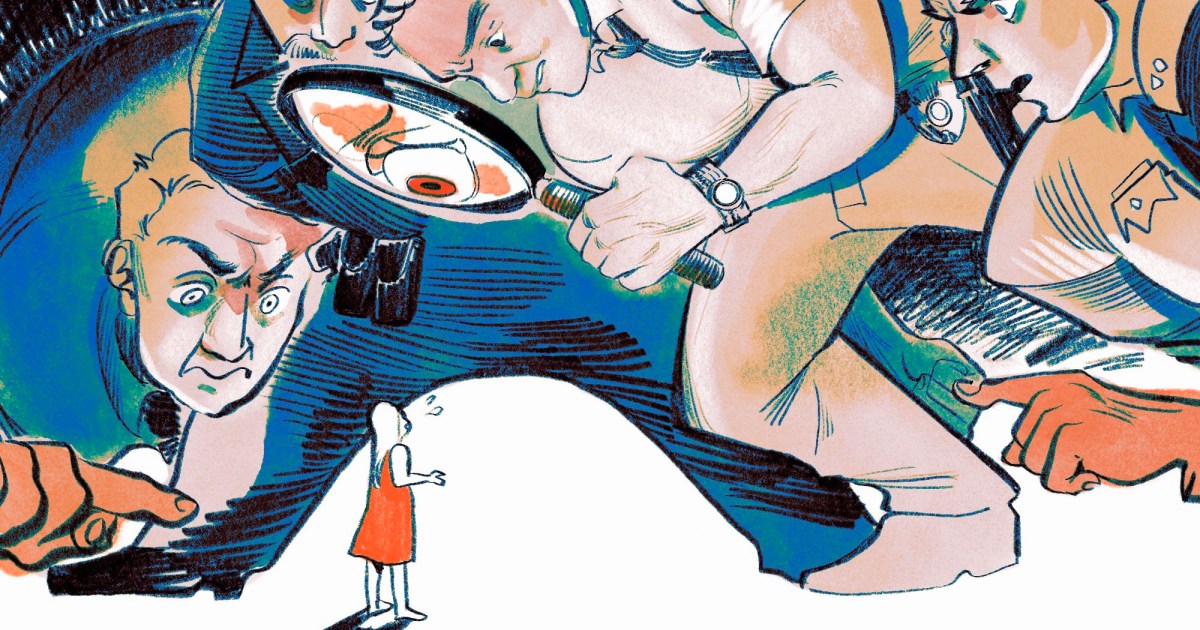
After graduating from a Denver nursing school in 2016, Neil Rudis knew the real training wouldn’t start until his first job—ideally in acute care at a Level 1 trauma center treating the sickest and most injured patients. So he was excited to sign on at the neurological intensive care unit at University of Colorado Hospital, the flagship facility of one of the state’s largest and richest health care employers. His contract included a catch that’s become common for new nurses: If he quit or was fired before a year on the job, Rudis would have to repay UCHealth up to $7,500 for training, with any debt accruing 12 percent annual interest. The arrangement is called a Training Repayment Agreement—critics add the word “Provision” to round out the acronym.
Rudis focused on what he thought he’d learn, and not the position the deal would put him in. “I definitely want to go into a TRAP,” Rudis remembers thinking. “I’ve heard such good things.” But within months, his excitement turned to anxiety, as he came to worry that the ICU was short-staffed. Nurses assigned to instruct him kept getting pulled away, leaving him alone with patients before he felt ready. “I’d come out of the room trying to find somebody,” he recalls, “and there’s no one available.” The hospital ended his training a month early so he’d be freer to work and help fill its staffing gap. When supervisors asked Rudis to teach the hospital’s new nursing recruits, he told the trainees he was still learning, and they’d have to figure things out together.
The stress took its toll. Rudis’ blood pressure shot up as he skipped lunches and bathroom breaks. Worse, he worried about the patients. When one exhibited signs of neurological distress and urgently needed a CT scan, two hours passed before they were transported. Another was left to sit in their own excrement. Rudis says he “got into health care to really care for people” but instead found himself “denying the humanity” of patients “because we don’t have enough staff.” But with about $35,000 in nursing school loans, Rudis says he was afraid to speak up about understaffing, which he worried might get him fired. He couldn’t afford to trigger the TRAP and sink any deeper. “It just felt impossible,” he says.
Financial disincentives to leave a job were once largely restricted to high-paid workers—think the time-limited noncompete contracts that executives or TV anchors sign. But in recent years, employers of low- and middle-income workers have increasingly turned to debt-based contracts as a new way to prevent attrition from difficult, dangerous, or just plain bad jobs. Companies often present the training arrangements as an added benefit, but the associated debt amounts are often inflated and rarely reflect the actual value of instruction. TRAPs—which have been imposed on truckers, beauty salon workers, and even dog groomers—aren’t considered educational loans and, in most states, face little regulatory scrutiny. Research has found that the provisions have less to do with recouping training expenses than scaring workers into staying put; as Loyola Marymount University employment law professor Jonathan Harris put it in a 2021 study, many of the clauses can “be described as noncompetes in sheep’s clothing.” Nurses, whose commitment to patients already makes them unlikely to abandon their posts, are particularly vulnerable. In a 2022 National Nurses United survey, roughly one-third of hospital nurses reported being in a training repayment agreement at some point, most often, like Rudis, in their first jobs.
Spokesperson Dan Weaver says UCHealth’s staffing policies meet legal requirements, and that the company both trains employees to raise care concerns and provides an anonymous reporting channel. While Rudis concedes he received quality on-the-job instruction, Weaver argues his $7,500 repayment obligation was a fraction of typical training costs, which UCHealth claims can exceed $50,000. “Because of the amount invested in training for these nurses,” he wrote, “repayment agreements have been common.” But nurses elsewhere report being forced into TRAPs in exchange for little more than online summaries of what they already learned in school. A nurse whose first job was at a Fort Worth hospital owned by HCA Healthcare, one of the biggest for-profit health care systems in the US, told me a supervisor suggested she learn procedures on YouTube.
Before Covid-19, nursing schools had trouble keeping up with the demands of a booming health care sector, even as some health care companies cut jobs to bolster the bottom line. Staffing shortages worsened through the pandemic, as its stresses and dangers drove nurses to leave the profession or seek higher-paid traveling jobs. But according to Joanne Spetz, a health care labor economist at the University of California, San Francisco, there are now probably enough new nursing graduates to meet overall demand—but not always where there’s a shortage. Instead of punishing nurses, she says, health care companies should reward those who move where they’re needed and stay—more carrot and less stick. “If we don’t build their skills and retain them in the workforce,” Spetz says, “then we won’t have enough.”
But some health care companies have moved beyond TRAPs, finding ways to hide sticks inside their carrots. Sarah (who asked to conceal her real name and former employer) had 12 years of nursing experience when she took a position as a mental health nurse in a pediatric emergency room in Washington State. She had already been working part-time for the company that ran the hospital and was surprised to learn about a $20,000 signing bonus while onboarding. The only catch: She’d have to repay it if she left before her two-year contract was up. She wasn’t worried. “The stars are aligning,” she thought. “Everything is great.”
It wasn’t. On the job, patients experiencing a mental health crisis sometimes bit, hit, or kicked her. Once, alone with a developmentally delayed teenager who towered over her, she was headbutted and thrown against a wall. Like Rudis, Sarah worried most about her patients. The pediatric ER required a mental health nurse around the clock, but the shift was often covered by unspecialized nurses from other units. Sometimes, when Sarah returned from lunch, she would find a child restrained unnecessarily. So she picked up extra shifts, often working 16-hour days back-to-back. “That was me selling my soul to the hospital and trying to meet the needs of these patients and not myself,” she says now. Within a year, she started having nightmares about work and was diagnosed with PTSD.
It was “one of the lowest points of my life,” Sarah says. By the time she realized what the job was doing to her, she’d already spent most of her bonus on a car down payment. “Who’s going to have that much money and just put it in the bank and wait in case they have to repay it?” she asked.
According to researchers at the American Economic Liberties Project, debt-based retention schemes have helped health care behemoths like UPMC, one of Pennsylvania’s dominant providers, remake labor markets in their favor as they swallow up competitors. (In May, a coalition of unions sued UPMC, alleging, among other things, that it deliberately understaffs its facilities to suppress nurses’ wages.) These “big health care corporations are not only buying other hospitals,” says Carmen Comsti, lead regulatory specialist at National Nurses United, “they’re buying up everything up and down the food chain of the nursing profession.” She says those purchases can include nursing schools that waive tuition in exchange for a multiyear work commitment, and medical debt collection firms repurposed to pursue repayment from TRAP-indebted nurses. Of course, the biggest health care companies don’t just own hospitals—they own long-term care facilities, clinics, and many other places nurses might work. “With their hands in every part of the system, they’re able to make these demands on the nurses,” Comsti says, “on top of being able to monopolize the labor market.”
The consolidation has made it harder for nurses to avoid bad jobs and could be a barrier to both ending the broader nursing shortage and improving working conditions. “If people are moving around and voting with their feet, then the good employers will prevail,” says Spetz. (Rudis, for one, bailed from UCHealth after two years for a travel nurse job based in California with better conditions.) But not everyone can easily pick up and move out of an area with consolidated ownership for a better job, notes Spetz. “If you’re a new graduate nurse, in effect you have fewer places to work because they’re all owned by the same people.”
While the Federal Trade Commission is currently considering new rules to rein in the broader issue of abusive TRAPs, when it comes to nursing, big health care systems may themselves hold the key to ending the practice. Last year, UCHealth said it would stop using TRAPs; an HCA spokesperson said it had eliminated them after starting to phase them out in 2022. Weaver said UCHealth expects the move to “have a positive impact both on retention and recruitment of excellent nurses.” In time, market power could force other employers to follow suit.
Until that happens, many nurses are still paying a high price for fleeing jobs they determined were unsafe or intolerable. In January, Sarah finally quit her pediatric ER job; Washington state labor regulators later found the hospital had repeatedly violated worker safety rules, fining it $30,000. Her new nursing job has less stress, better pay, and no strings attached. But because Sarah’s contract still had a year on it when she left, her old company demanded she repay $14,000, the after-tax value of her signing bonus, within a week of putting in notice. When she balked, they agreed to accept a monthly minimum of $50. So that’s what she plans to pay—for the next 23 years, or until her former employer is itself absorbed by a bigger hospital chain.















